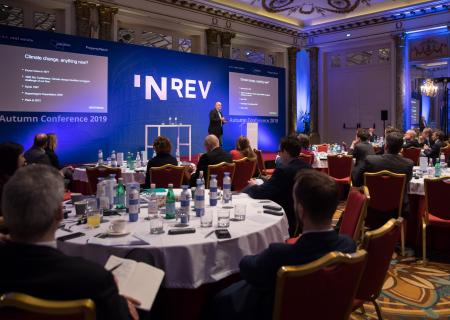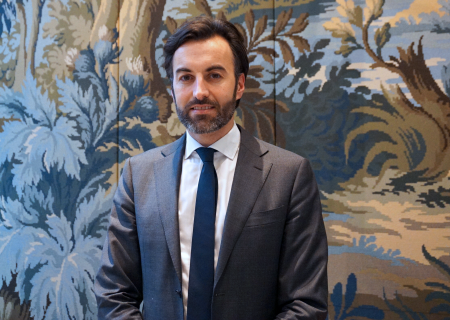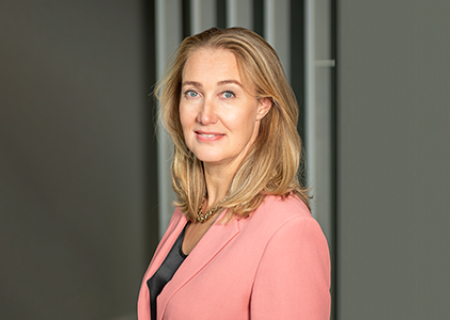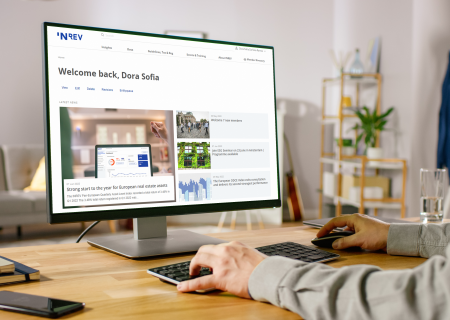Looking back on the INREV Masterclass
Enabling innovation and digital transformation in your business
How a company innovates has become a critical factor in thriving businesses and real estate is no exception in needing to embrace digital transformation.
How the industry can approach these radical changes was the topic of a one-day INREV masterclass in London on Enabling innovation and digital transformation in your business in October 2019, attended by a select group of INREV board and committee members.
Course leader Ilse French , founder of @ExponentialBlue, told the group of INREV Management Board Members and other senior executives that transformation needs to be top of the agenda for real estate businesses. ‘Transformation needs to be a priority, not a hobby,’ she said. ‘We all see it as burden but if we are creating the value for the stakeholders, that is the uplifting part.’
Transformation needs to be a priority, not a hobby
This requires getting out of ‘business as usual mode’ and instead taking a critical look at how digital transformation can enable your business to better meet the needs of your stakeholders and customers. ‘[Businesses need to ask] what will our future investor look like and then start working backwards,’ said French.
Alexander Taft, Chair of INREV’s Technology Committee added his view on the topic. ‘It is crucial to understand that business strategy is the driver of everything in achieving operational excellence and innovation. This means for real estate companies that their business strategy needs to determine the data strategy. Data strategy then informs the technology strategy. Stop solutioning! Only focus on the most impactful change initiatives in your organisation to get started.’
Guy Grainger, CEO for EMEA at JLL, spoke about how JLL has been approaching transformation. ‘First thing we had to do was get into the mindset to navigate a complicated world. People don’t appreciate how ugly innovation is at the beginning. They build things and they don’t work, you pivot, test on customers, and pivot again.’ In-built into that process was being prepared to fail to ‘measure success tightly, kill it and move onto the next.’
An important part of transformation for companies is to have more unified data strategies. Naseem Wenzel, a partner at CohnReznick, said that companies needed to build confidence and trust in data and how that is shared within a company. ‘There are silos today. People are creating their own information sets and each of those is separate and distinct so the company isn’t leveraging its own data,’ she said.
This can be countered by neutralising the data layer so those that support the business are purely focused on that data adding value to the business. This could mean hiring in new roles such as a chief data officer as well as data stewards and data scientists. ‘The organisational shift is not having typical real estate people on that side of the table,’ she said.
The organisational shift is not having typical real estate people on that side of the table
Neeral Patel, Business Partner with @ExponentialBlue spoke about how to create a platform that meets your business needs. To do this, key considerations included the overall strategy of the company, the operational effectiveness and the talent and skills required to deliver that.
Automation for manual and repetitive tasks could offer attractive cost efficiencies but also enhanced user and stakeholder experience as well as an increased focus on value-add work. In addition, companies should be focused on building a culture that embraces transformation and leadership that promotes diversity and inclusion.
Kirk Vallis, Global Head of creative capability development at Google, an expert in the development and harnessing of creativity and innovation within the work place, spoke about creating the right attitude for digital transformation. He called it critical creativity, which he defined as the mindset and habit of approaching challenges in a different way and with positive intent.
He suggested that people should create space to think, and stop relying on past knowledge to solve problems. Instead, they should build products for the world as it will be when it is finished, rather than how it is now.
People should create space to think, and stop relying on past knowledge to solve problems.
The workshop was well received by the group with Ilkka Tomperi, Member of the INREV Management Board shared that, “The content and exchange that came out of the workshop very well set the tone for future discussion on this topic. It is clearly high on the agenda for many and it was a great opportunity to prioritise which elements should be tackled first.”
A further masterclass will be held on an invitation only basis. More details to follow







